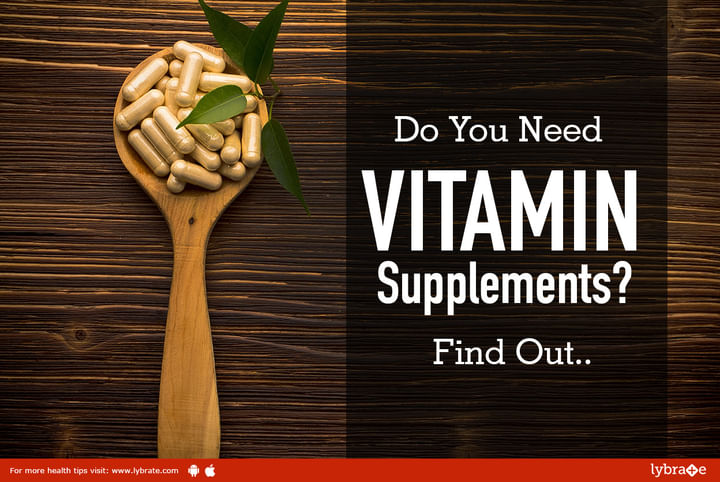Do You Need Vitamin Supplements?
Do you need vitamin supplements? Here's how to find out
Taking vitamin and mineral supplements is increasingly becoming common these days. People generally opt for these supplements to ensure good health as their diets are usually lacking in vitamins due to the pursuit of a hectic lifestyle.
But before you begin consuming vitamin supplements, it's necessary for you to know whether your body actually needs them. According to nutritionists, you should plan your diet appropriately to fulfill your nutritional needs and not depend on vitamin supplements to do so. If your diet includes foods like fruits, green vegetables, whole grains, low-fat dairy products, legumes, fish and lean meat, you won't need vitamin supplements.
So, when exactly do you need vitamin supplements?
You might need vitamin supplements in the following cases:
- If you are above the age of 50, you can take a vitamin b-12 supplements. Additionally, you may consider eating food items fortified with vitamin b-12, like fortified cereals.
- If your diet does not meet the normal requirement of 1, 600 calories a day, you should consider dietary supplements. Moreover, the diet of people who do not consume red meat usually lacks in zinc and iron, which can be supported by vitamin and dietary supplements.
- If you are a woman whose menstrual cycle is associated with heavy bleeding, you might need vitamin supplements.
- If you suffer from a disorder that has a negative impact on the nutrient absorption process of your body, you need to take vitamin supplements. These conditions include chronic diarrhoea, food intolerance, food allergies or any disease related to the liver, pancreas, intestines and gall bladder.
- If your body has difficulty in absorbing and digesting nutrients because of surgery of the digestive tract.
- If you are a woman who is planning to have a child. Women who want to get pregnant should consume 400 mg of folic acid, which can be obtained from dietary supplements or fortified foods.
- If you are pregnant, you should include a prenatal vitamin in your daily diet. This vitamin should contain iron. You may also fulfill this iron requirement by consuming a separate iron supplement.
If you would like to consult with me privately, please click on 'consult'.



+1.svg)
